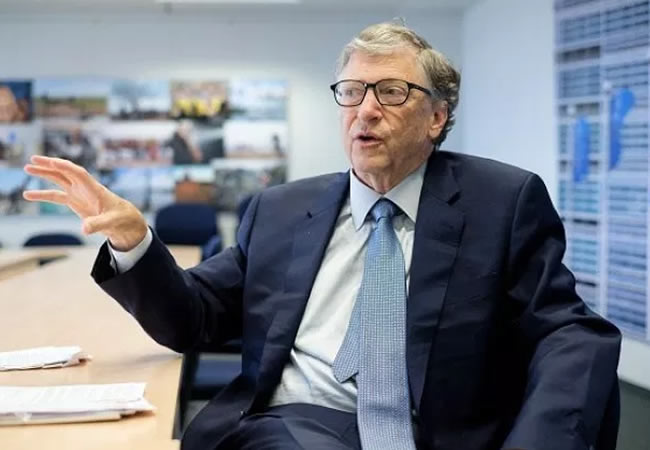Bill Gates, the Microsoft co-founder and renowned philanthropist, has announced his intention to donate virtually all of his vast fortune, estimated at $200 billion, leaving himself with a mere one percent. This monumental philanthropic endeavor will be facilitated through the Bill and Melinda Gates Foundation, which Gates plans to sunset by the end of 2045. This decision marks a significant acceleration of his original philanthropic timeline and reflects his deep commitment to addressing urgent global challenges. He firmly believes that retaining such immense wealth while pressing issues plague the world would be a moral failing.
The Gates Foundation, established in 2000 with his then-wife Melinda French Gates, has already disbursed over $100 billion towards global health initiatives, education, and poverty reduction. The foundation’s impact is undeniable, having played crucial roles in vaccine development, medical research breakthroughs, and emergency aid delivery worldwide. Gates expresses profound pride in the foundation’s accomplishments over the past 25 years, highlighting its pivotal involvement in establishing Gavi, the Vaccine Alliance, and the Global Fund to Fight AIDS, Tuberculosis and Malaria. These two organizations, he notes, have collectively saved over 80 million lives. The foundation has also been instrumental in the fight against polio, collaborating with Rotary International, and has supported the development of a life-saving rotavirus vaccine that has dramatically reduced childhood mortality from diarrhea.
The decision to close the foundation within the next two decades represents a strategic shift from the initial plan, which envisioned the foundation continuing its operations for a longer period after the founders’ deaths. Gates explains that after careful consideration and consultation with the foundation’s board, he concluded that the foundation’s ambitious goals could be achieved within a shorter timeframe, especially with intensified investments and increased certainty provided to their partners. This revised timeline also provides ample notice to the global health and development community about the eventual cessation of the foundation’s funding, allowing them to plan accordingly.
The remaining one percent of Gates’ fortune, approximately $1.6 billion, is likely to be distributed among his three adult children, Phoebe, Rory, and Jennifer. While Gates hasn’t explicitly confirmed this, previous reports suggest this is the most probable outcome. This still leaves a substantial inheritance for his children but underscores his commitment to dedicating the overwhelming majority of his wealth to philanthropic endeavors. This accelerated timeline for giving underscores Gates’ evolving philosophy towards philanthropy, prioritizing impactful giving during his lifetime rather than leaving a legacy solely through an endowment.
Gates details the foundation’s significant contributions to global health, including its central role in establishing Gavi and the Global Fund. These organizations revolutionized the procurement and delivery of life-saving tools like vaccines and antiretroviral medications. The foundation’s partnership with Rotary International has been crucial in the ongoing fight to eradicate polio. Furthermore, their support for the development of a new rotavirus vaccine has drastically reduced child mortality from diarrhea. These are just a few examples of the foundation’s broad impact on global health. Gates emphasizes the collaborative approach the foundation has consistently adopted, bringing together various stakeholders, including other foundations, nonprofits, governments, multilateral agencies, and the private sector, to tackle complex global challenges. This collaborative spirit, he asserts, will continue to be a cornerstone of the foundation’s work over the next two decades.
Despite the undeniable positive impact of the Gates Foundation, it hasn’t been immune to criticism. Some voices have questioned the extent of Gates’ influence over global health funding decisions, arguing that such concentrated power might not always be beneficial. However, Gates remains steadfast in his belief that, like any private citizen, he has the right to determine how his earned wealth is utilized. He views the 20-year timeframe as an appropriate balance between maximizing the impact of his giving and providing sufficient notice to the global community about the eventual depletion of the foundation’s resources. He stands by his decision, confident that it offers the best approach to achieve tangible progress on pressing global issues.


